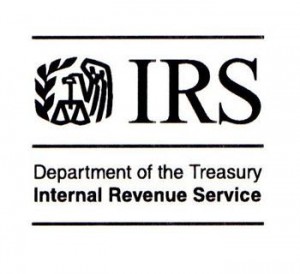 The Tax Cuts and Jobs Act of 2017 made a number of changes affecting the compensation and benefits that governmental, church, and other tax-exempt organizations can provide to their employees. Given the short time between introduction and passage of the Act, it is not surprising that many of the new provisions are unclear in their application. Moreover, some of them may produce unintended consequences for these organizations.
The Tax Cuts and Jobs Act of 2017 made a number of changes affecting the compensation and benefits that governmental, church, and other tax-exempt organizations can provide to their employees. Given the short time between introduction and passage of the Act, it is not surprising that many of the new provisions are unclear in their application. Moreover, some of them may produce unintended consequences for these organizations.
As part of a symposium on “Recent Developments in Benefits/Executive Compensation Affecting Tax Exempt Organizations,” Carol V. Calhoun gave a presentation on the ways in which the Tax Cuts and Jobs Act of 2017 will affect the compensation and benefits of such organizations. A copy of the PowerPoint for her speech can be found at this link.
 As previously discussed, faced with substantial budget cuts, the Internal Revenue Service (“IRS”) has announced that it is eliminating most determination letters (letters concerning the qualified status of retirement plans, which gives rise to numerous tax benefits), effective December 31, 2016. (Announcement 2015-19.) In the past, individually designed retirement plans were able to obtain a determination letter once every five years, during a cycle provided by the IRS. The most likely new regime will involve making determination letters on individually designed plans available only when a plan is first adopted, or when it is terminated. Between those dates, the only way to ensure qualification other than filing a declaratory judgment action with the Tax Court is likely to be to adopt annual updates put out by the IRS that will include model wording for amendments.
As previously discussed, faced with substantial budget cuts, the Internal Revenue Service (“IRS”) has announced that it is eliminating most determination letters (letters concerning the qualified status of retirement plans, which gives rise to numerous tax benefits), effective December 31, 2016. (Announcement 2015-19.) In the past, individually designed retirement plans were able to obtain a determination letter once every five years, during a cycle provided by the IRS. The most likely new regime will involve making determination letters on individually designed plans available only when a plan is first adopted, or when it is terminated. Between those dates, the only way to ensure qualification other than filing a declaratory judgment action with the Tax Court is likely to be to adopt annual updates put out by the IRS that will include model wording for amendments.
For entities that maintain a retirement plan, the new regime may mean that they discover qualification issues only on audit, when it is too late to fix the issue. And the potential penalties on audit (for the employer, the trust under the plan, and the employees) are, as set forth in a prior article, huge. What steps should a plan administrator take to ensure the qualification of a plan after that point? Read more.
 On July 21, 2015, the Internal Revenue Service (“IRS”) issued Announcement 2015-19, in which it announced that it would be making substantial changes to the determination letter program intended to allow retirement plan sponsors to ensure that their plans are qualified (eligible for tax benefits). This announcement will affect all retirement plans intended to be qualified, but will create particular issues for plans maintained by governmental employers (“governmental plans”). Read more.
On July 21, 2015, the Internal Revenue Service (“IRS”) issued Announcement 2015-19, in which it announced that it would be making substantial changes to the determination letter program intended to allow retirement plan sponsors to ensure that their plans are qualified (eligible for tax benefits). This announcement will affect all retirement plans intended to be qualified, but will create particular issues for plans maintained by governmental employers (“governmental plans”). Read more.
 In light of the Supreme Court decision in Obergefell v. Hodges, employers that maintain plans covering employees in same-sex marriages who live in any of the states that previously did not recognize same-sex marriage will have to adjust state tax withholding and reporting for such employees. State Taxes and Married Same-Sex Couples Before Obergefell provides a handy chart for determining which states are affected.
In light of the Supreme Court decision in Obergefell v. Hodges, employers that maintain plans covering employees in same-sex marriages who live in any of the states that previously did not recognize same-sex marriage will have to adjust state tax withholding and reporting for such employees. State Taxes and Married Same-Sex Couples Before Obergefell provides a handy chart for determining which states are affected.
 This post was updated on June 26, 2015 to reflect the Supreme Court’s decision in Obergefell v. Hodges, which struck down all state bans on same-sex marriage.
This post was updated on June 26, 2015 to reflect the Supreme Court’s decision in Obergefell v. Hodges, which struck down all state bans on same-sex marriage.
The Treasury Department and the IRS announced on August 29, 2013 that all legal same-sex marriages will be recognized for federal tax purposes. On September 18, 2013, the Department of Labor took the same position for purposes of the Employee Retirement Income Security Act of 1974 (“ERISA“). The announcements and corresponding revenue ruling (Rev. Rul. 2013-17) apply only to marriages legal in the jurisdiction in which performed. They do not apply to civil unions or domestic partnerships. (Of course, parties to a civil union or domestic partnership could still obtain the benefits of the announcement and revenue ruling by getting legally married.) The Treasury and IRS position was later reinforced by the Supreme Court decision in Obergefell v. Hodges, which struck down all state bans on same-sex marriage.
Because employee benefit plans are extensively regulated by federal law, this announcement means that all employers will be required to recognize such marriages for many employee benefits purposes. Conversely, employers in states that treat civil unions or domestic partnerships as if they were marriages will nevertheless be forbidden from treating such arrangements as marriages for certain employee benefits purposes. However, the precise impact will depend on whether the plan is subject to ERISA or whether it is a governmental or church plan exempt from ERISA. The chart below sets forth areas in which the announcement will affect the operation of different types of plans.
Read more.
 The Checklist of Federal Tax Law Rules Applicable to Public Retirement Systems has now been extensively updated. The chart, which identifies each of the Internal Revenue Code sections that does and does not apply to governmental plans, now includes links to each of the Internal Revenue Code sections referenced, as well as various updates to reflect recent legislative and administrative developments.
The Checklist of Federal Tax Law Rules Applicable to Public Retirement Systems has now been extensively updated. The chart, which identifies each of the Internal Revenue Code sections that does and does not apply to governmental plans, now includes links to each of the Internal Revenue Code sections referenced, as well as various updates to reflect recent legislative and administrative developments.
While this case by its terms dealt only with the taxation of a retirement distribution under a now-repealed section of the Internal Revenue Code, it has been used by analogy to determine whether an individual has had a termination of employment that would permit a distribution before age 62 in the case of a pension plan, or before age 59½ in the case of a 401(k) plan. See General Information Letter 2000-0245 (September 6, 2000).
LARKINS, JR., District Judge: This civil action was instituted by the plaintiffs to recover certain income taxes and interest thereon paid to the defendant as a result of certain assessments made by certain of the defendant’s employees.
Read more
 The Tax Cuts and Jobs Act of 2017 made a number of changes affecting the compensation and benefits that governmental, church, and other tax-exempt organizations can provide to their employees. Given the short time between introduction and passage of the Act, it is not surprising that many of the new provisions are unclear in their application. Moreover, some of them may produce unintended consequences for these organizations.
The Tax Cuts and Jobs Act of 2017 made a number of changes affecting the compensation and benefits that governmental, church, and other tax-exempt organizations can provide to their employees. Given the short time between introduction and passage of the Act, it is not surprising that many of the new provisions are unclear in their application. Moreover, some of them may produce unintended consequences for these organizations.

 In light of the Supreme Court decision in
In light of the Supreme Court decision in